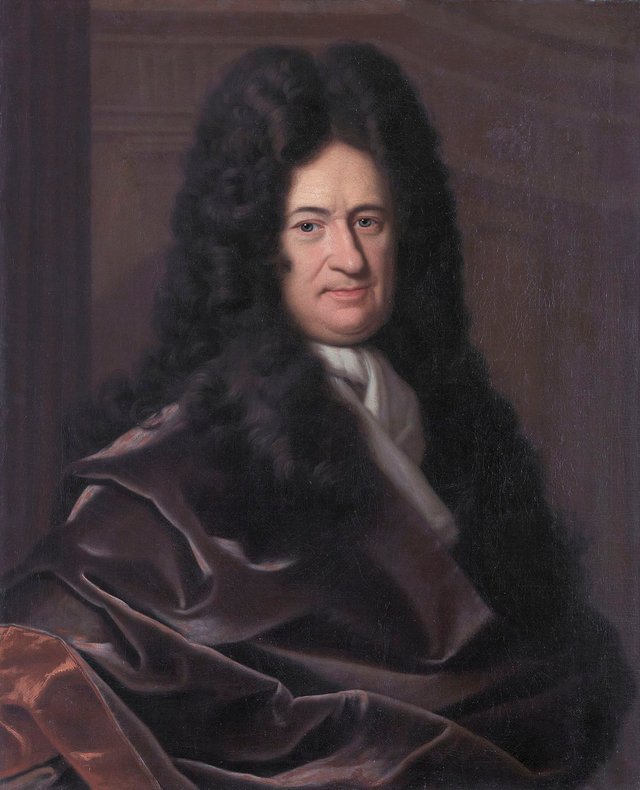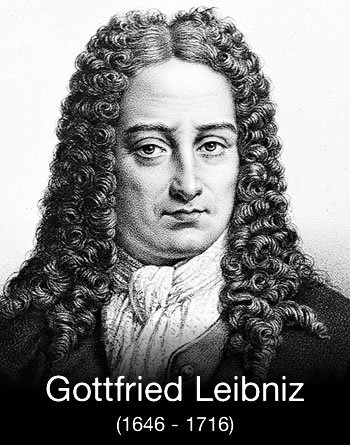
German mathematician philosopher, born in Lepzig and dies in Hanover. His scientific and philosophical activity is remarkable and scholars consider him the first philosopher of importance in Germany. His academic background covers law, history, linguistics, diplomacy, physics, theology, philosophy and mathematics. Discover the infinitesimal calculus with Newton and establish a consistent philosophical system that has lasted until the modern world. He is educated in the Lutheran family in the Nicola Schule and in his father's private library as a self-taught person. He entered the University of Leipzig in 1661, where he conceived Galileo and Galileo, Francis Bacon, Thomas Hobbes and the Lutheran nominalists; She is a doctor in law and studies mathematics in Jena. In 1673 he traveled to Paris, where he met Antoine Arnauld, who exerted great influence on his thinking.

He studied mathematics with Christian Huygens, which he perfected with his treatises on integral and differential calculus in 1675. He traveled to Hanover and worked as a librarian for Prince Juan Federico; develops an intense intellectual activity there and is related to the most important cultural centers in Europe. It maintains correspondence with Jacques Bénigne Bossuet from 1702 and from this exchange deduces his philosophical theory. His thesis on the universe and its composition in monads or immaterial and independent substances with their own movement, tries to reconcile the Aristotelian ideas of the internal purpose of nature and the doctrine of Baruch Spinoza of mechanical causality. The union of these particles or monads occurs thanks to an ideal and not physical causality and they constitute the universal harmony. For Leibniz, God directs human and universal harmony. His metaphysics considers that knowledge starts from God towards man.

Leibniz affirms that there are two kinds of truths, that of reason, which is based on the principle of identity or contradiction and the truth of fact, which is explained in the principle of sufficient reason. In the Theodicy (1710), to refute the ideas of Pierre Bayle, forerunner of the French Enlightenment. Among his works stands out (Monadología) 1714; Dissertatio of Combinatory Art (1666); Discour de métaphysique (1686); Sistéme nouveau de la Nature (1695) and New Essays on the Human Understanding (1765).